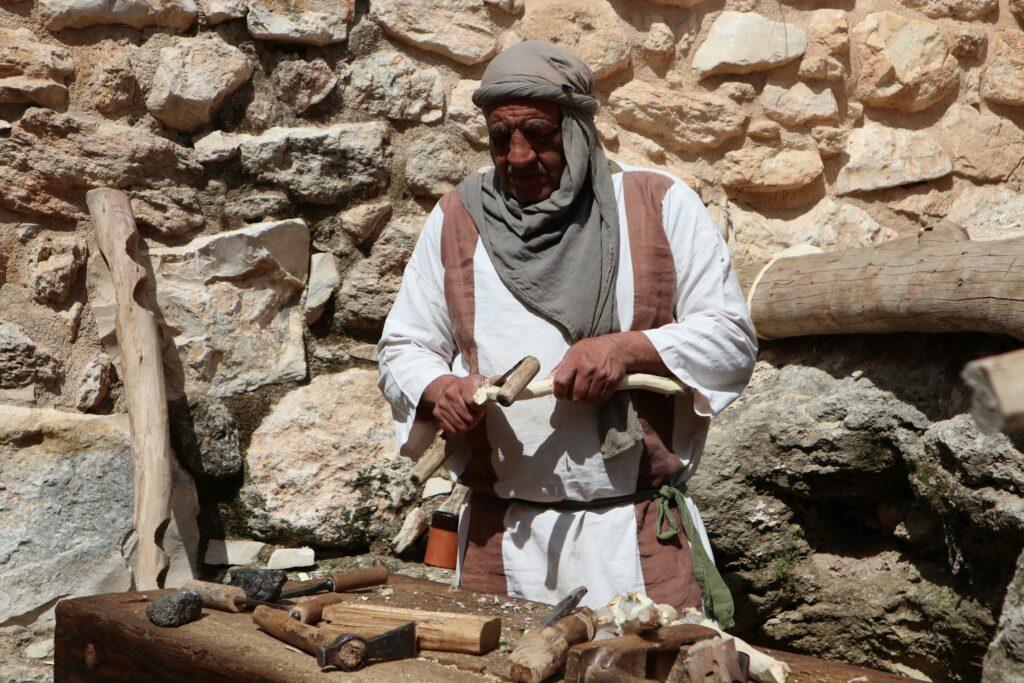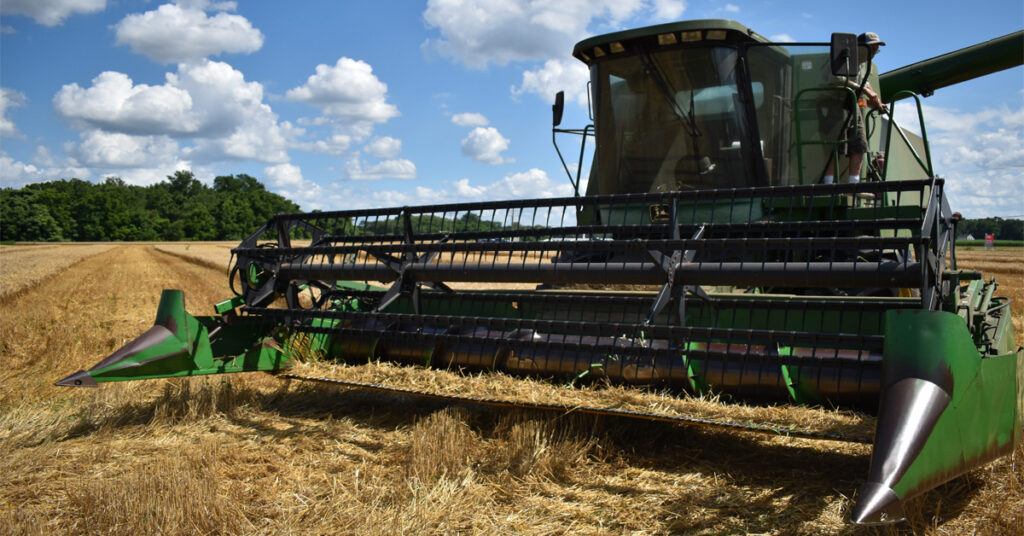Isaiah 49:4 says, “Then I said, I have labored in vain, I have spent my strength for nought, and in vain: yet surely my judgment is with the Lord, and my work with my God.”
Though Jesus was a carpenter, we have no record of a house He built. He did say that He was going to prepare a place for the disciples in His Father’s house (John 14:2). Maybe He meant building a place. I have seen pictures in Sunday School papers of Jesus working on a table or chair in Joseph’s carpenter shop. Jesus was a texton, a builder with stone or wood—a craftsman. (Many laborers in Israel today, and likely in Jesus’ time, sit with a hammer and chip away on a slab of sandstone, making a decorative building block called a “Jerusalem stone.”) Whatever kind of manual labor Jesus did for most of His life, it made Him a man of great strength and endurance, enabling Him to go through the beatings and crucifixion at the time of His death. According to Mark 15:25, 33, and 34, Jesus was hung on the cross at 9:00 a.m. and died at 3:00 p.m. For six hours He struggled to stay alive so He could die at 3:00 p.m.—the time of the killing of the Passover lamb that He was to replace.
In our text we see the words, “I have labored in vain.” At first it appears to be Isaiah speaking. However, the preceding verse says, “And he said unto me, Thou art my servant, O Israel, in whom I will be glorified.” Was God going to be glorified in Isaiah? By verse six it is clearly speaking of Jesus the servant, “…that thou mayest be my salvation unto the end of the earth.”
Verse 5 is very interesting, as Jesus realizes His servant role: “…Though Israel be not gathered, yet shall I be glorious in the eyes of the Lord, and my God shall be my strength.” In verse six it is clearly Jesus’ job is to “…raise up the tribes of Jacob, and to restore the preserved of Israel.” Before He even starts His work, He knows Israel will not be gathered.
It is no wonder Jesus would say, “I have labored in vain.” It is one thing for you or me to look back at our labor and feel it was in vain. It is another thing to start a work that we know will be in vain, and trust God to use it for good.
As Jesus grew from childhood, He quickly understood who He was and how the Scriptures applied to Him. He knew He would fulfill the prophecies about Him. Imagine what He must have thought when He read Isaiah 53. It was speaking about Him and His work assignment. Verse 2 says, “…he hath no form nor comeliness; and when we shall see him, there is no beauty that we should desire him.” That would cause most of us to turn the job down. Verse 3 says, “…He is despised and rejected.” Verse 7, “He was oppressed, and he was afflicted.” Verse 8, “…he was cut off out of the land of the living.” It goes on to say He was stricken. In verse 9, “…He made his grave with the wicked.” Verse 10, “…It pleased the Lord to bruise him, he hath put him to grief.” Is it any wonder Jesus would say, “I have labored in vain, I have spent my strength for nought, and in vain?”
Somewhere in this dismal assignment you and I would quit. The last half of the text caused Jesus to go forward, “…yet surely my judgment is with the Lord, and my work with my God.” Isaiah 53 ends with Jesus’ reward and His success. The bottom line is I Corinthians 15:58, “Therefore my beloved brethren, be ye steadfast, unmovable, always abounding in the work of the Lord, forasmuch as ye know that YOUR LABOR IS NOT IN VAIN IN THE LORD!”




